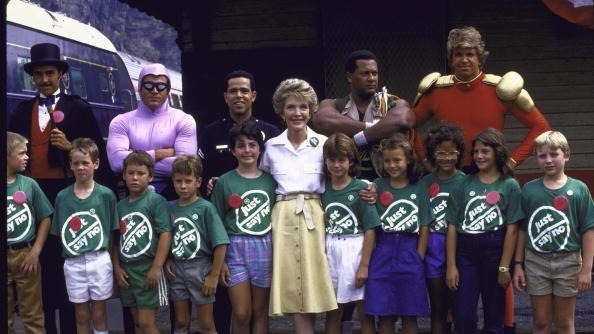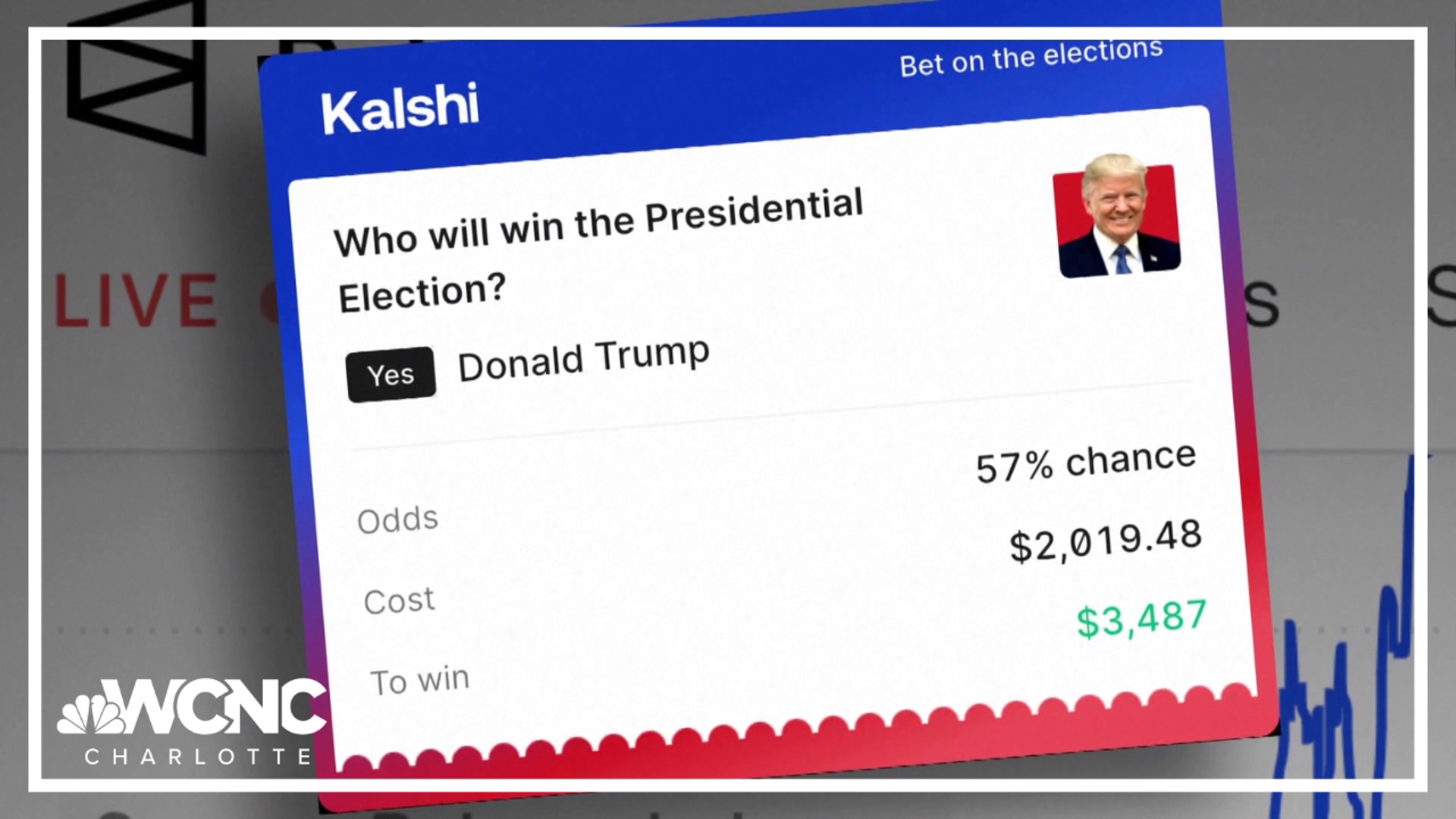Nancy Reagan may best be remembered for three words: "Just say no," the motto of her years-long anti-drug crusade.
She had been concerned about drug use prior to her arrival at the White House, but as first lady she made prevention of youth drug addition her signature cause.
She said the slogan had come from a meeting with children. The Ronald Reagan Library tells the story this way: "A little girl raised her hand,” Mrs. Reagan recalled, “and said, ’Mrs. Reagan, what do you do if somebody offers you drugs?’ And I said, ’Well, you just say no.’ And there it was born.”
The library says that by the end of the Reagan administration in 1989, more than 12,000 "Just Say No" clubs had been formed worldwide.
Nancy Reagan worked with a New York advertising firm to shape the campaign and used popular culture to propel her message. In 1983, she played herself in an episode of the popular sitcom Diff'rent Strokes. Diminutive star Gary Coleman portrayed a reporter for the school newspaper who discovered drugs being sold on campus, and Mrs. Reagan came to the school to offer support for anti-drug efforts.
Another popular kids television show, Punky Brewster, aired an episode about resisting peer pressure to take drugs, and started a partnership with Mrs. Reagan's "Just Say No" clubs organizing anti-drug "Punky Brewster Marches" at schools around the country.
In October 1983, Reagan appeared as guest house on ABC's Good Morning America program, interviewing former drug addicts and their family members.
"They tell me to keep on doing what I'm doing, to try to help focus attention on this tremendous problem that we have in this country," she said on the program, according to an Associated Press account from the time, "and to try to help the parents who are so confused and so frightened, who don't know what to do."
And she made hundreds of personal appearances at anti-drug events. The Reagan Library reports that "in 1984 alone, she made 110 appearances and fourteen anti-drug speeches," and she handed out countless green and white Just Say No t-shirts and buttons to crowds of students.
In September 1987 she met one-on-one Pope John Paul II to discuss her anti-drug efforts.
"Just Say No," however, has also been heavily criticized as an over-simplistic approach to addressing drug abuse. Scientific American reported in 2014 that studies showed students need a much more nuanced education on social interactions and that students in "Just Say No"-style programs were as likely to use drugs as students who were not.
And drug use, particularly cocaine, soared in the 1980s, as did the number of people incarcerated for drug-related offenses. By the end of the decade, pollsters reported that a majority of Americans saw drug abuse was the most serious issue facing the nation.


